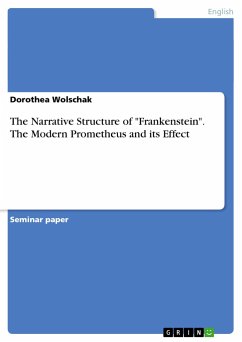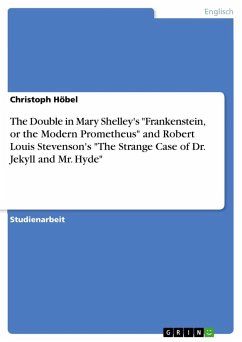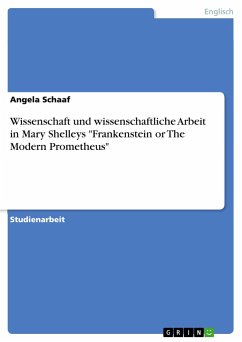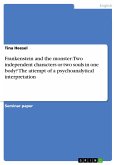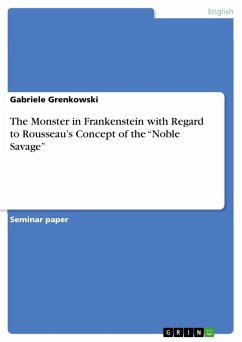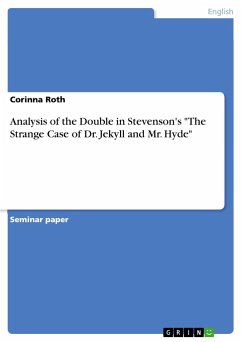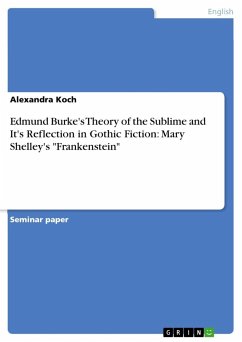Seminar paper from the year 2013 in the subject English Language and Literature Studies - Literature, grade: 1,7, Catholic University Eichstätt-Ingolstadt, language: English, abstract: The Gothic novel "Frankenstein, or The Modern Prometheus" is the result of Mary Shelley's travels to Geneva, Switzerland, with her future husband Percy Bysshe Shelley, Dr. John Polidori and Lord Byron, themselves famous authors, and an entertaining contest between those friends about who could write the best horror story. Conceived of a nightmare after reading German ghost stories by the fire and conversing about Darwinism, occult ideas, galvanism and science, the only nineteen-year-old Mary Shelley put this piece of art down on paper and published it anonymously in 1818.Frankenstein is a novel with a complex narrative structure. In the core of the novel the Creature's story is presented to us framed by Victor Frankenstein's story which itself is enframed by Robert Walton's epistolary narrative. The overall structure of the novel is symmetrical: it begins with the letters of Walton, shifts to Victor's tale, then to the Creature's narration, so as to switch to Victor again and end with the records of Walton. In this manner the reader gets different versions of the same story from different perspectives. Mary Shelley's rather atypical approach not to stick to only one narrator and one defined narrative situation throughout the book creates various impressions on the reader of the novel.The narrative situation of a text describes the structure of how the content, plot, characters and events are being mediated to the reader and is often referred to as the point of view. The narrative situation is one of the main categories in literary analysis. One of the most important academics who concerned himself with the systematisation of narrative structures since the 1950s is the Austrian literary theorist Dr. Franz Karl Stanzel (1923). There is strong competition by the typology of Gérard Genette since the 1990s, however, Stanzel's theory is being taught to date, which is why it is used in the following analysis of the narrative structure in Frankenstein and its effect on the reader.
Hinweis: Dieser Artikel kann nur an eine deutsche Lieferadresse ausgeliefert werden.
Hinweis: Dieser Artikel kann nur an eine deutsche Lieferadresse ausgeliefert werden.

